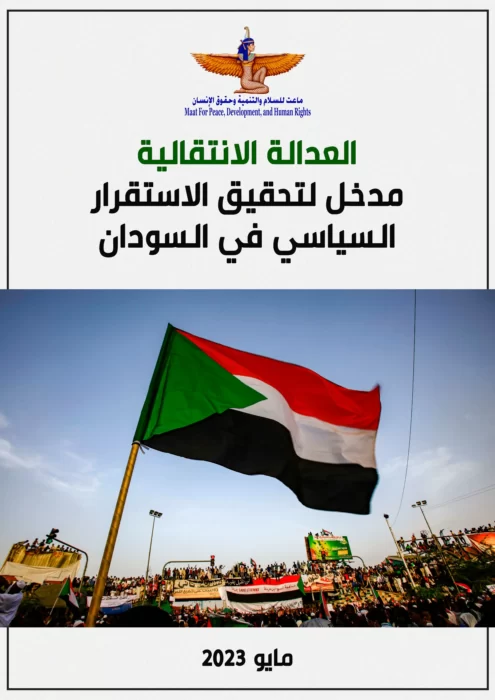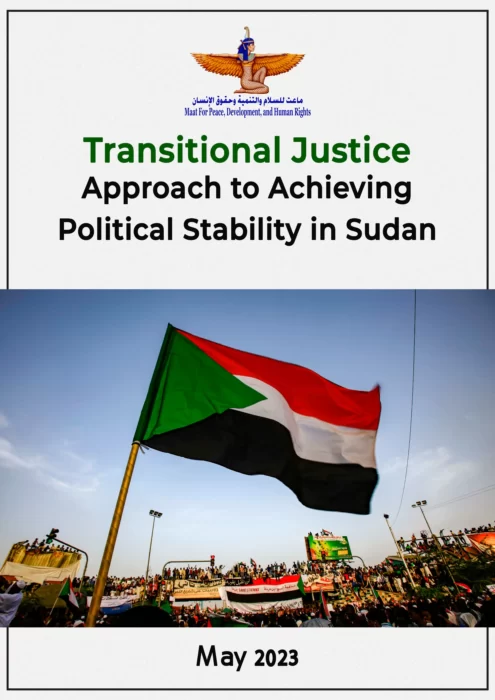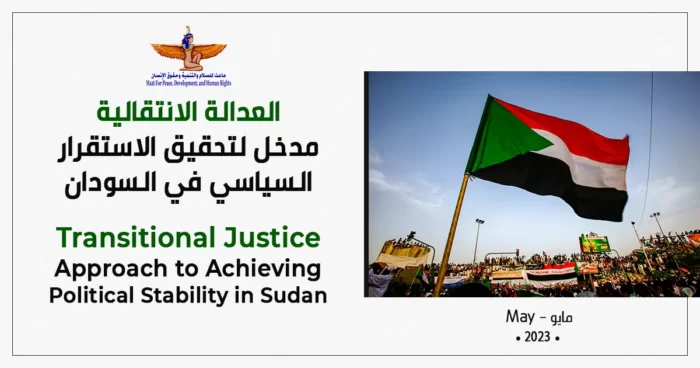Maat: Transitional justice is approach to achieving political stability and alleviating the humanitarian crisis in Sudan
Okeil: The provisions of the rule of law, transitional justice, and prosecution initiatives must be incorporated into Sudanese laws
Gharib: We call for accelerating humanitarian and relief response to tackle the deteriorating humanitarian crisis in Sudan
Based on the importance of strengthening political stability, as well as laying down the foundations of basic human rights, and believing in the role of transitional justice in laying the foundations for stability in all its forms and manifestations, Maat for Peace, Development and Human Rights issues a new study entitled " Transitional Justice: An Approach to Political Stability in Sudan."
Maat issues the study on the sideline of the activities of the 75th session of the African Commission on Human and Peoples' Rights. During its participation in the session, Maat observed the African mechanism clear interest in the escalating Sudanese crisis, through holding side events and special sessions on ways to achieve political stability in Sudan.
The study seeks to develop a conceptual model of "Transitional Justice", analytical monitoring of the facts and epics of Sudanese transitional justice, and indicators of the extent of its success or the obstacles it faces. In conclusion, the Study presented a set of recommendations and proposals in the hope of achieving transitional justice in Sudan.
Commenting on the study, "Ayman Okeil", an international human rights expert, and the President of Maat for Peace, Development and Human Rights, referred to the problems of implementing transitional justice in Sudan, where the first attempts to achieve transitional justice faltered as a result of security complexities, imbalances of national integration, political changes and multiple political transitions since 1958. Second attempts also faltered as a result of disharmony and lack of political trust between the military council and the forces of freedom and change, as well as the differences between the military parties themselves from the Sudanese army and the Rapid Support Forces (RSF).
Accordingly, Okeil called on all concerned parties to create multiple alternatives to political dialogue and to facilitate participation in political negotiations, to mediate between the negotiating parties. The international human rights expert recommended the necessity of preparing and drafting a regulation on the rule of law, including tools for prosecution initiatives, and briefing reports addressed to the Office of the United Nations High Commissioner for Human Rights.
In the same context, Sayed Gharib, a researcher at the Sustainable Development Unit at Maat, pointed out that despite all efforts to achieve transitional justice in Sudan, the state has turned into a war zone filled with bombs, planes, and explosive weapons. Since the outbreak of the crisis in April, at least 700 people have been killed, more than 5,200 have been injured, and estimated 736,200 people have been displaced. The political crisis has also cast a shadow on food insecurity which rates became 19.1 million people, not to mention the increasing cases of sexual violence, with 3.1 million women and girls were exposed to the risk of gender-based violence.
Gharib recommended that statements of condemnation and alarm bells be sounded for the international community regarding the deterioration of the humanitarian situation in Sudan, and work to accelerate the humanitarian and relief response to the deteriorating humanitarian situation in Sudan by providing food and health needs.

 |
 |











